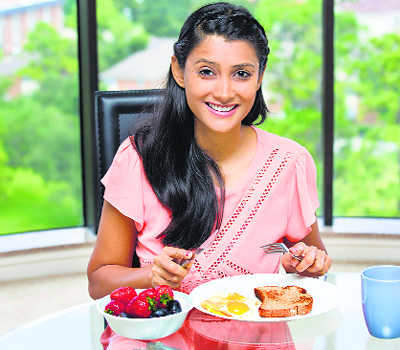Naini Setalvad
Women of all ages are realising the importance of a good diet at all stages of life. When you think of today's women, whether it's a pre-teen, teenager, a young woman, a pregnant mom, a middle-aged or a senior woman their basic nutritional needs remain more or less similar. But at different stages she has different needs and nutritional intake should be tweaked accordingly.
Teenage
This is the period of growth spurt, so extra energy is required. Foods like whole grains, vegetables, nuts, fruits, pulses need to be added to balance the junk food that the teenagers enjoy eating at this age. Milk and milk products also need to be added to boost calcium as well as foods rich in iron.
Young women
Since most women are away from home for either study or work, they should take responsibility to eat healthy. Reduce fats, include foods rich in iron and calcium. Avoid smoking and limit alcohol intake.
Pregnancy
Pregnant women should concentrate on nutrient intake rather than caloric intake. Dieting is a strict no-no, concentrate on quality and replace junk with nutritious foods when there are food cravings. Be physically active, add plenty of fluids. Folic acid, calcium and iron requirements increase. For pregnant women 300 calories per day are needed. These should come from leafy greens, vegetables and milk.
Menopausal women
Eat foods rich in calcium. Do weight-bearing exercises to strengthen bones and maintain healthy weight. High fibre, low-fat, low-salt diet can reduce menopausal symptoms. Eat lot of pulses, flax seeds, whole grains, fruits, vegetables.
Older women
Eat balanced meals and do regular exercise. Eat nutrient-dense foods, include whole grains, vegetables, nuts, seeds, limit salt intake. Add high-fibre foods, to prevent constipation. Keep the vitamin D levels up.
Unlock Exclusive Insights with The Tribune Premium
Take your experience further with Premium access.
Thought-provoking Opinions, Expert Analysis, In-depth Insights and other Member Only Benefits
Already a Member? Sign In Now










